
Samagra Vikas facilitated through Panchamukhi Shikshana
The vision of Rashtrotthana Parishat and RVK is – “Swastha-Susthira Samajanirmaana”
The main goal of education is to shape a well-rounded personality, elevating individuals from basic instincts to divine human qualities. It should equip children for material prosperity and Adhyatmik Anand. Education should instil the qualities of Paripurna Manav depicted in Bharatiya Sanskriti through Dharma, Artha, Kama, and Moksha.
Human personality comprises five Koshas (layers):
- Physical – Annamaya Kosha
- Psychological – Praanamaya Kosha
- Emotional – Manomaya Kosha
- Intellectual – Vigyanamaya Kosha
- Spiritual – Anandamaya Kosha
Uniform and complete development of all five aspects of human personality can happen only through integral education or Panchamukhi Shikshana that achieves Panchakoshatmak Vikaas or Paripurnata of Manav.
At RVK, we follow Panchamukhi Shikshana, an education system encompassing five key aspects to ensure Samagra Vikas (holistic development) in our children.
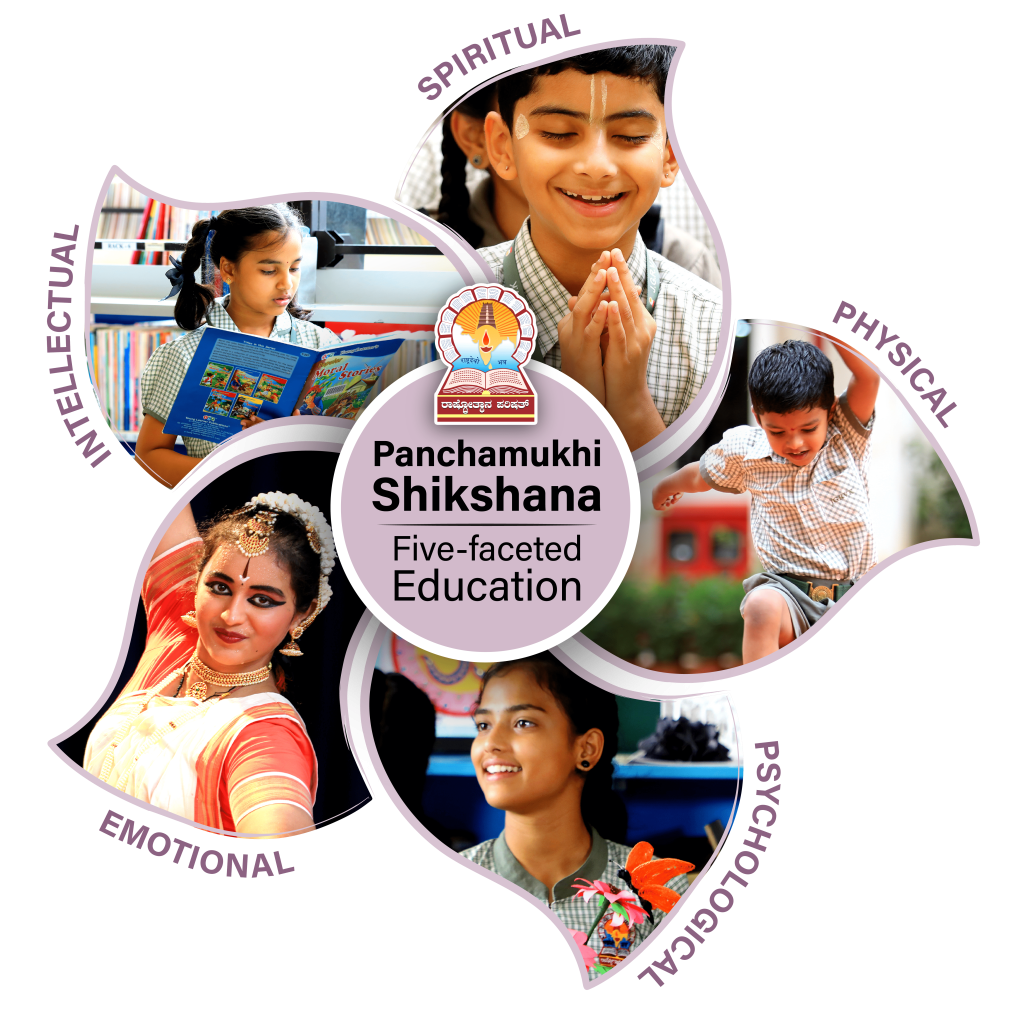
Panchamukhi Shikshana - The Five-Pronged Education
The five-fold Panchamukhi Shikshana integrates physical, psychological, emotional, intellectual, and spiritual activities into the school curriculum, aligning with the NCERT syllabus for comprehensive child development.
Most schools focus on training a child to take examinations. Education for life beyond examinations and empowerment to ennoblement is often considered extracurricular. However, learning is only meaningful when it prepares a child for life. The Panchamukhi Shikshana addresses this need. At RVK, we have successfully integrated learning with the Panchamukhi qualities, linking curriculum to life skills and personal development.
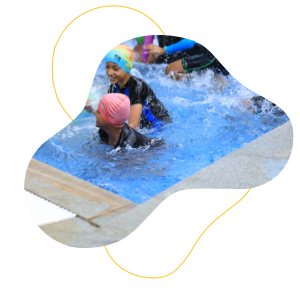
Development of Annamaya and Pranamaya Kosha - Physical
- Develop physical strength by engaging in games and sports
- Build flexibility and stamina by incorporating yoga
- Develop healthy living habits by providing good nutrition
- Practise hygiene and personal health by emphasising cleanliness and personal well-being.
- Develop Prana Shakti and Indriya Shakti through systematic and structured Ashtanga Yoga practice.
Globally, people perceive physical education (PE) and sports as less critical for a child’s education than intellectual development. However, physical development forms the foundation of education and is vital for overall well-being and enjoyment.
RVKs’ physical fitness programs, including games and martial arts, are complemented by ensuring a balanced diet for proper growth and nourishment.
Development of Manomaya Kosha - Psychological
Psychological development is essential for overall growth. A positive and focused mind is crucial for achieving goals in life.
- Understand the behaviour of Manas.
- Train the Manas to handle negativity.
- Purify Manas by removing defilements – Arishad Varga: Kaama, Krodha, Lobha, Moha, Mada, Matsarya.
- Learn concentration and active detachment.
Engaging in practices like Ashtanga yoga and meditation cultivates a peaceful, strong, and balanced mind, which we can easily direct towards larger goals and higher visions.
RVK’s systematic and structured yoga classes promote harmony of the body, mind, and spirit, equipping students with the skills to plan, prepare, and forge their future.
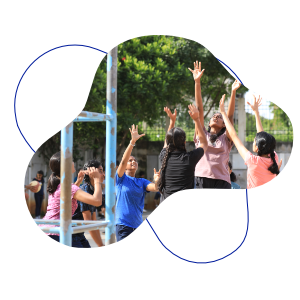
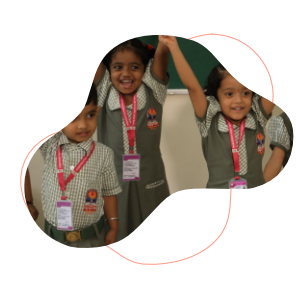
Development of Manomaya Kosha - Emotional
- Develop strong bonds with self, family, society, nation, humanity, and the universe.
- Take pride in our rich, vast and ancient cultural heritage.
“Actions are mighty, thoughts are almighty” – Swami Vivekananda.
Emotional development encompasses “Manomay Kosha,” focusing on aspects related to the mind. Thought, the root of all actions, is influenced by the behaviour of the mind. Manomay kosha deals with managing emotions and building positive social relationships. Developing the mind is crucial for building a robust Emotional Quotient (EQ).
At RVK, we nurture students’ emotional well-being via dance, drama, music, art, and cultural activities, instilling a deep sense of love, loyalty, and patriotism in them.
Development of Vigyanamaya Kosha - Intellectual
- Developing deep strength in observation, analysis, synthesis, abstract thinking, logical reasoning, problem-solving, imagination, creativity and language skills
“Education is the manifestation of the perfection already existing in man” – Swami Vivekananda.
Our intellect allows us to think independently, discern between good and evil, and make logical decisions by analysing situations. Intellectual development goes beyond memorisation and cracking exams. It involves equipping the child to assimilate, process, understand, and create wisdom. The emphasis should be on developing these faculties through the NCERT curriculum.
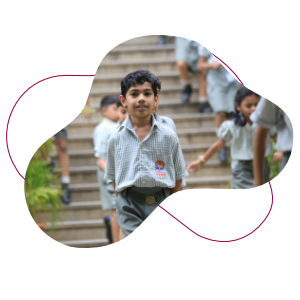
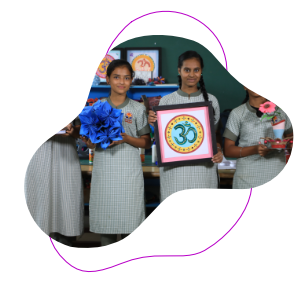
Progressing towards Anandamaya Kosha - Spiritual
- Understanding the true goal of life – the path of happiness – “Sat-Chit-Anand”.
- Understand various paths to ‘Oneness with Universe’ – “Vasudhaiva Kutumbakam”
The essence of spiritual development is: to be born human, live a humane life and grow as divine!
Spiritual development unveils the inherent divinity within a child, guiding them to realise and manifest their true nature—Sat-Chit-Ananda (Existence-Consciousness-Bliss). Spiritual Education aims to transform human life into divine life, fulfilling the adventure of existence in human form on earth.
RVK provides a serene and spiritually nurturing environment through regular prayers, chanting shlokas, Bhagwad Geeta, and Veda mantras.
Academic Support
Academic support encompasses various resources and strategies aimed at helping students succeed in their studies.
- The academic team guides academic planning and goal-setting and addresses students’ concerns and challenges. The team helps plan the age-appropriate annual curriculum, activities, and teaching-learning materials. The team focuses on specific subjects and general study skills for the teachers and students.
- Workshops and seminars are conducted to teach students and teachers for effective teaching, study strategies and time management.
- Sessions to prepare worksheets and examination question papers are regularly
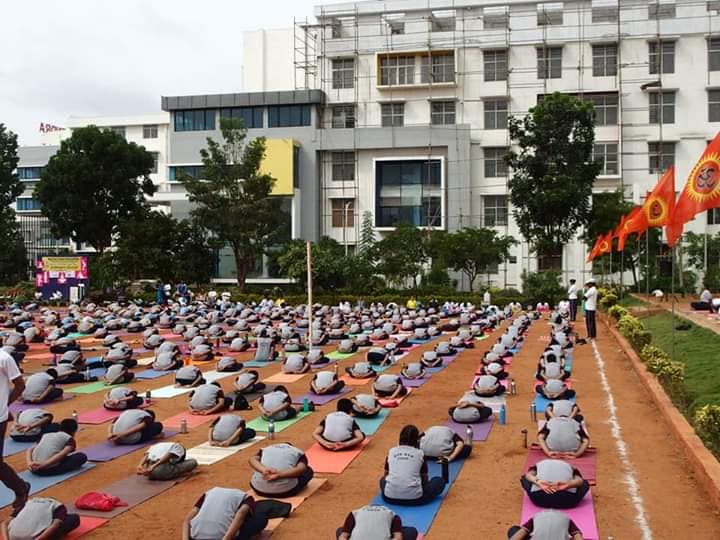
Curriculum & Pedagogy
The CBSE curricular and pedagogical structure at RVK-Kalaburagi aligns with NEP – 2020, focusing on meeting learners’ developmental needs and interests. Some key features include:
- The five-year foundational stage (3-8 years) integrates play, discovery, and activity-based pedagogy, fostering an engaging learning environment.
- The middle stage emphasises experiential learning and explores interdisciplinary connections to develop 21st-century skills, introducing specialised subjects while encouraging broader skill development.
- The curriculum and pedagogy prioritise genuine comprehension and the cultivation of ‘learning how to learn,’ moving away from the prevalent culture of rote learning.
Alumni
ROOTS – Rashtrotthana Old Students Organisation for Transformation of Society
ROOTS, an initiative from Rashtrotthana, highlights global interconnectedness and sees social empowerment as key to uplifting humanity. It’s a platform for former students to contribute individually and collectively regardless of the duration of their schooling at RVK.
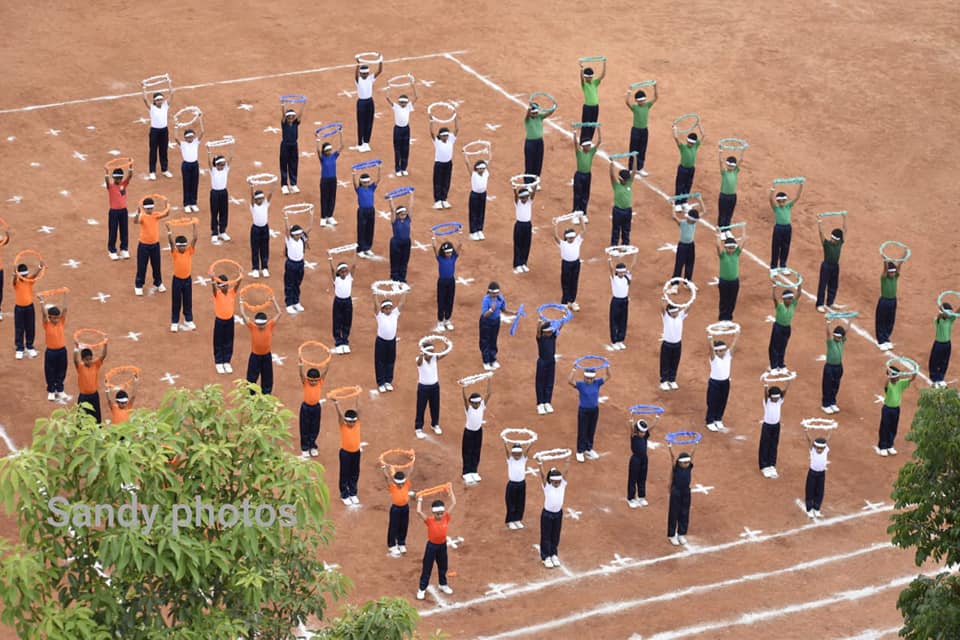
Key Objectives :
- Build a lasting bond with our alumni.
- Cultivate a sense of responsible citizenship among ROOTS members.
- Empower ex-students to act as catalysts for driving positive social change.
- Present our former students as role models to current students within the school.
- Equip our students to embody and fulfil the institution’s Vision and Mission.
Benefits enjoyed by a life member of ROOTS include :
- Access to school updates.
- Invitations to major school events.
- Participation in an annual ROOTS meet, providing a platform for sharing personal experiences and reminiscing.
- Opportunity to participate in seminars and interactive sessions featuring distinguished personalities.
- Short excursions aimed at strengthening the sense of unity among ROOTS members.
The process of becoming a life member of ROOTS is as follows :
- At the Sankalpa Sweekara, the oath ceremony for outgoing 10th-grade students, they pledge to uphold values taught by parents and teachers.
- After Sankalpa Sweekara, interested students can join with a nominal fee for a lifetime membership.
ROOTS maintains ties with former students and endeavours to mould them into responsible citizens and agents of societal transformation. The organisation strives to nurture a sense of unity, purpose, and positive influence among its members through various engagement opportunities and activities.
